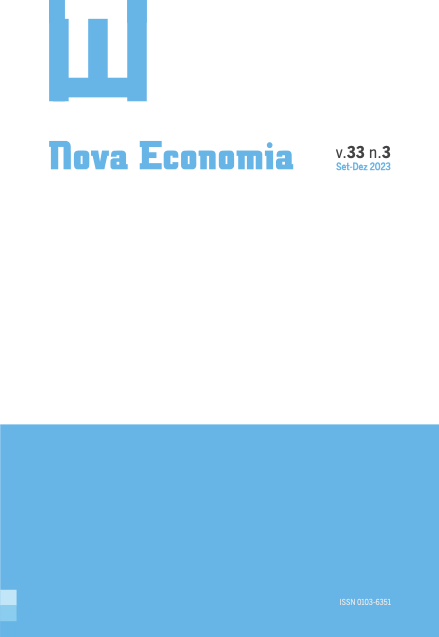Life-cycle productivity and gender differences in academic research: evidence from a Brazilian public university
Abstract
Personal attributes and behavioral factors
are key factors in determining researchers’
scientifi c productivity. Investigating what
determines the academic productivity among
university researchers is the purpose of this
study, which uses a sample of microdata from
professors at a public university in Brazil (Federal
University of Juiz de Fora) for the period
1999-2013. The main results show that age
and academic productivity have an inverted-
U-shaped relationship, revealing that experience
enhances academic production. Regarding
gender differences, we found that women
generally have lower average productivity
than men. However, at the end of their careers,
women are subject to greater leverage
effects in productivity and therefore achieve
productive parity with men, especially during
their production peaks.
Downloads
Published
How to Cite
Issue
Section
License
Copyright (c) 2023 Eduardo Gonçalves, Carolina Teixeira Saldanha, André Suriane da Silva

This work is licensed under a Creative Commons Attribution 4.0 International License.
Authors who publish with this journal agree to the following terms:
- Authors retain copyright and grant the journal right of first publication with the work simultaneously licensed under a Creative Commons Attribution 4.0 International License that allows others to share the work with an acknowledgement of the work's authorship and initial publication in this journal.
- Authors are able to enter into separate, additional contractual arrangements for the non-exclusive distribution of the journal's published version of the work (e.g., post it to an institutional repository or publish it in a book), with an acknowledgement of its initial publication in this journal.
- Authors are permitted and encouraged to post their work online (e.g., in institutional repositories or on their website) prior to and during the submission process, as it can lead to productive exchanges, as well as earlier and greater citation of published work (See The Effect of Open Access).




